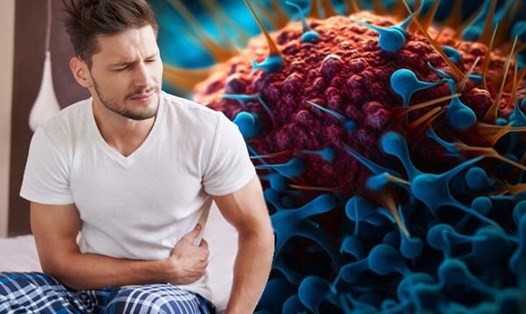Factors contributing to kidney stones in young people
According to Dr. Ayan Kumar Dey, Consultant - Nephrologist and Transplant Physician, PD Hinduja and MRC Hospital, Mahim, Mumbai (India), kidney stones can form due to many factors, of which family history plays an important role, as those with relatives suffering from the disease are at higher risk. An improper diet, especially consuming too much salt, animal protein and foods containing oxalate such as spinach or nuts, also increases the risk of the disease. In addition, dehydration, lack of exercise and medical conditions such as diabetes or calcium metabolism disorders are also risk factors to pay attention to.
Genetic factors: Dr. Kumar emphasizes that genetic factors, as well as shared lifestyle and dietary habits within the family, can significantly increase the risk of kidney stones.
Over-the-counter medications: Self-medication with over-the-counter medications, especially vitamin C tablets, without proper medical supervision is a major cause of kidney stones.
Unhealthy diet: Consuming foods high in sodium, such as processed foods and fast foods, along with drinking less water, are major risk factors for kidney stones, says Dr. Kumar.
Urinary tract infections and kidney problems: People with a history of urinary tract infections, kidney stones, or underlying kidney problems are at increased risk of developing kidney stones.
Dos and Don'ts to Prevent Kidney Stones
To prevent kidney stones, Dr. Kumar shares helpful tips on what to do and what not to do:
Things to do:
Limit sodium in your diet: Minimize your intake of salt and processed foods to reduce your risk of forming kidney stones.
Drink plenty of water and fluids: Keeping your body well hydrated helps filter waste and prevent stone formation.
No restriction of calcium in diet: However, calcium consumption should be properly controlled. Consult a nutritionist for a suitable diet.
Regularly follow up with a kidney specialist if there are signs of kidney stones or kidney problems.
Maintain a healthy lifestyle: Eat a balanced diet, exercise regularly, and maintain a healthy body weight to reduce your risk of kidney stones.
Things not to do:
Avoid over-the-counter medications: Taking medications, especially vitamin C, without medical supervision can be harmful to kidney health.
Limit meat consumption: Especially red meat and foods high in purines, as they can increase uric acid levels and the risk of kidney stones.
Avoid foods high in oxalates: Foods such as spinach, nuts, and chocolate contain oxalates, which can contribute to kidney stone formation.
Don't ignore the signs and symptoms of kidney stones: If you experience symptoms such as back pain, painful urination, or blood in your urine, seek help from your doctor immediately.











